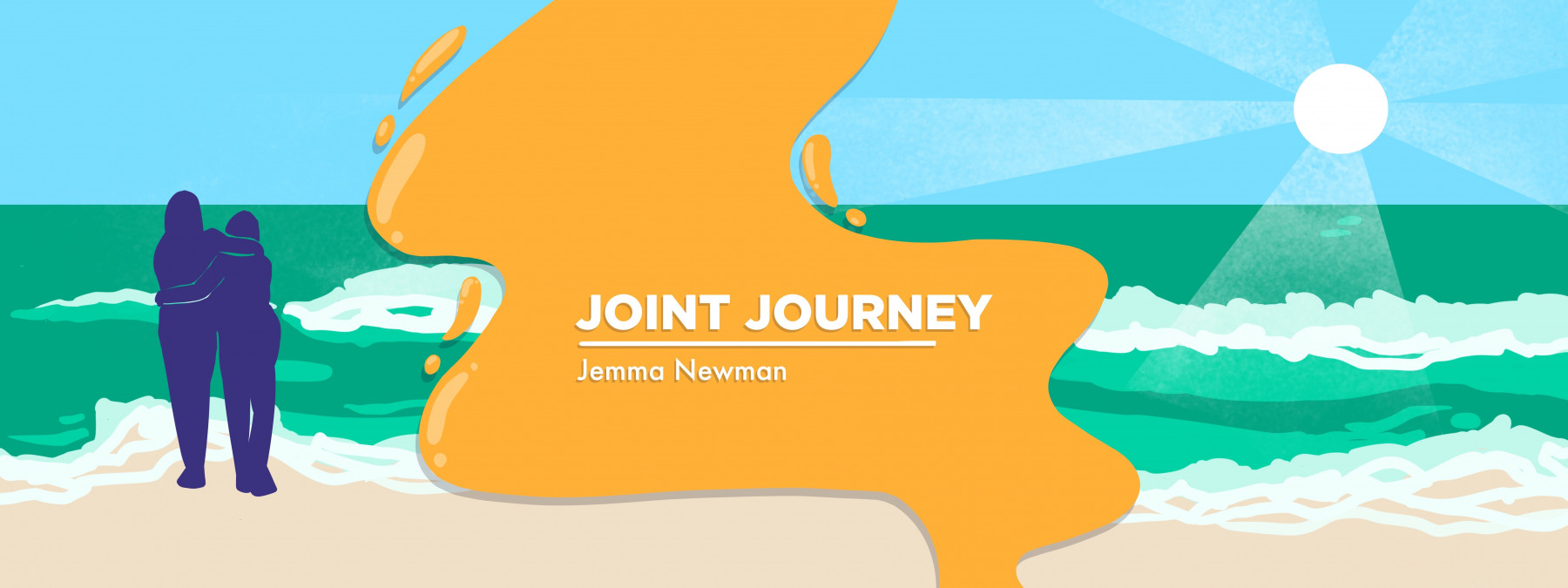What it feels like to be crushed by ankylosing spondylitis fatigue
With AS fatigue, every aspect of life can become challenging
Written by |

“I can barely remember these events happening. I was just so tired all the time,” my husband, Dave, sadly remarked as we scrolled through family photos from a few years ago.
The fatigue caused by ankylosing spondylitis (AS) isn’t the same as feeling that you could use a few extra hours of sleep or another strong coffee to perk you up. Dave and I both experienced crushing fatigue during different stages of our AS that was marked by complete and utter exhaustion. A heaviness filled our bodies and made us almost unable to respond to others. Some days I was too tired to even lift a fork to my mouth to eat.
I remember taking our children home from the park one day and finding Dave slumped on the carpeted floor of the lounge room. His skin looked gray with exhaustion, and his eyes were ringed by heavy, dark circles. I felt choked up with worry as I tried to figure out how I could help him with this AS symptom, because it wasn’t being discussed in doctor appointments.
Dave’s extreme fatigue lasted years, as he went through the long process of being diagnosed with AS. The trouble with this level of exhaustion is that it makes every aspect of your life more challenging: trying to work, having relationships with your friends and family, and fitting in exercise or stretching for AS stiffness.
What causes AS fatigue?
It seems the exhaustion that goes hand in hand with AS has several probable causes. First, the National Ankylosing Spondylitis Society explains that fatigue can be due to ”sleep disturbance due to pain and stiffness in the night.” A lack of sleep, especially chronic sleep deprivation, can have a dramatic effect on our energy levels. And one of the classic markers of AS is painful joints and a sore back to worsen after inactivity or lying down to sleep.
I was often able to sleep only from 10 p.m. until 1 a.m., and I’d fitfully toss and turn for the rest of the night while my spine felt like it had turned into burning coal. Lying still is unbearable when you have increasingly painful sacroiliac joints or other areas affected by AS, such as your spine, ribs, or shoulders. Every morning I’d wake up exhausted, because the first AS medicines I received didn’t even take the edge off the nighttime burning sensation.
Fatigue associated with AS is a Catch-22, because you desperately want extra rest, but lying still makes your joints painfully stiffen. It’s a vicious cycle that means you never feel fully rested or able to recover.
Another cause of AS fatigue seems to be chronic inflammation. The Spondylitis Association of America explains that “when inflammation is not well controlled, the body must use energy to deal with it. The release of cytokines in the process responsible for inflammation can produce the sensation of fatigue.”
Struggling to get out of the fog
I don’t think fatigue is discussed often enough in relation to AS, even though it can negatively affect our daily lives. There’s no medicine to “fix” exhaustion. For us, it was an invisible and unmeasurable AS symptom that seemed to fluctuate with the level of disease activity we experienced.
When I was in the middle of an AS flare, I felt consumed with exhaustion. When you hurt every minute of the day, you can’t sleep, and achieving the bare minimum takes more energy than you have to spare. It can be frightening.
Luckily, as my AS symptoms slowly improved, my fatigue vanished. I can’t tell you how good it feels to finish one task and cheerfully jump to the next. I can smile, joke, and make plans again — all of which felt impossible in the fog of fatigue.
There was no quick fix to escape the clutches of exhaustion caused by AS, but both Dave and I have consistently made changes every day to slowly but surely manage the disease we live with. It took months, and even years, to control our inflammation and slowly regain some energy.
If you’re experiencing AS fatigue, I hope you can find assistance with managing your symptoms, whether it’s through lifestyle changes or medication. I’d be interested to hear in the comments below how fatigue has affected your life.
Note: Ankylosing Spondylitis News is strictly a news and information website about the disease. It does not provide medical advice, diagnosis, or treatment. This content is not intended to be a substitute for professional medical advice, diagnosis, or treatment. Always seek the advice of your physician or other qualified health provider with any questions you may have regarding a medical condition. Never disregard professional medical advice or delay in seeking it because of something you have read on this website. The opinions expressed in this column are not those of Ankylosing Spondylitis News or its parent company, Bionews, and are intended to spark discussion about issues pertaining to ankylosing spondylitis.







George
I could go on for hours about how fatigue has *** me over. I believe, in my case, it is gut related like with probably everything AS. When I was younger (long before the AS had fully come to fruition), I had both unusual extreme energy for endurance, yet fatigue still plagued me when I wasn't fully engaged or mentally tired. As I'm older, I never came close to ameliorating fatigue and it's only gotten worse despite getting other relief (diminished pain and inflammation) from AS. I still have periods of extended energy, though much less frequent. I have good reason for having energy to burn given how much I sleep - and I mean real sleep. The ridiculous amount of sleep and rest does do plenty of critical good things for the body, despite having strong negatives as well. It's certainly bad socially and for productivity. There are probably layers of things that cause fatigue that are related (directly and loosely) to AS. I get overwhelming fatigue and the only good thing about that is it's healthier than the opposite. I'm glad yours becomes controlled along with the AS. I would venture to say that fatigue must be one of the hardest problems or symptoms to figure out given there are so many possible causes. Even when I fully aced all lab tests as I did for so long (and still do good) including for hormones, fatigue was still doing me in.
Neil Hamilton
I have lived with this disease for now for over 25 years and it doesn't get any better with time, although I have medication that manages the pain and stiffness I still suffer chronic fatigue especially during the winter months due to lack of warm natural glow of the sun. It has also massively affected my ability to work, as I can't do manual labor work and now in my late fifties struggle with mental fatigue and what I can only explain as brain fog, I struggle to focus for any length of time on following processes or procedures that you undertake in a normal working environment. I recently suffered the embarrassment of being let go from a position as a project manager a role I'd been able to do for years previous to having to admit I no longer had the ability to fully focus and keep up with the daily requirements of fulfilling my responsibilities, forgetting how to do basic tasks. Which has now left me in a situation where I feel my employment prospects have been drastically minimized as I'm unable to do manual labor and now be confident to do anything that requires cognitive health.